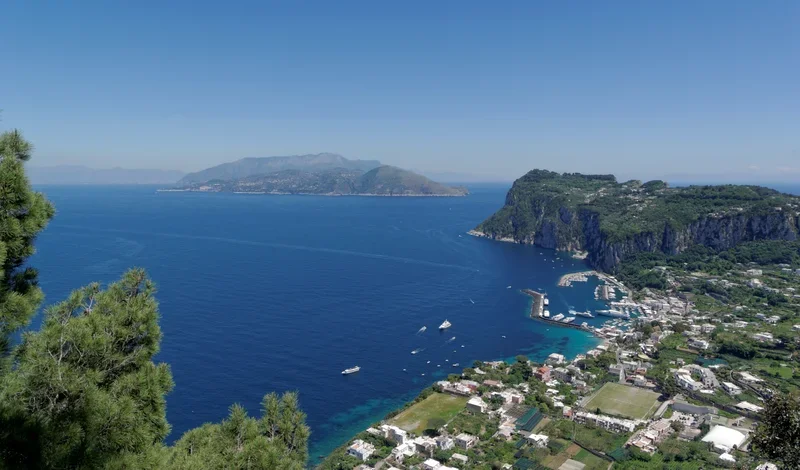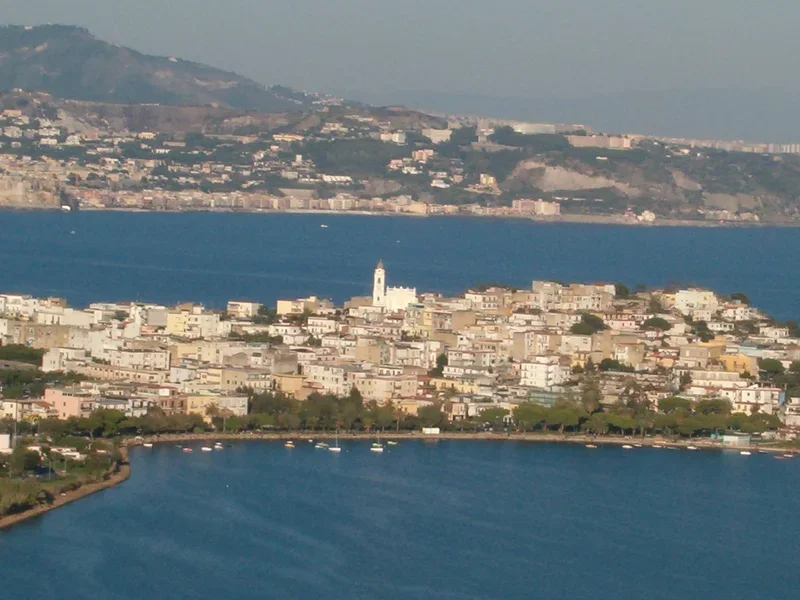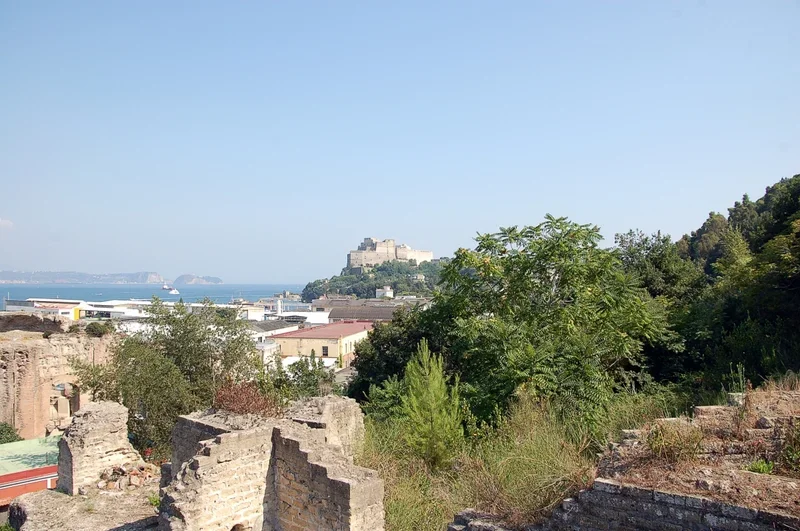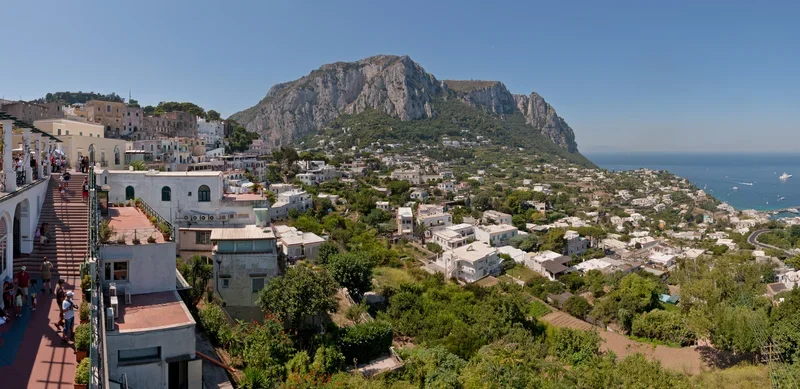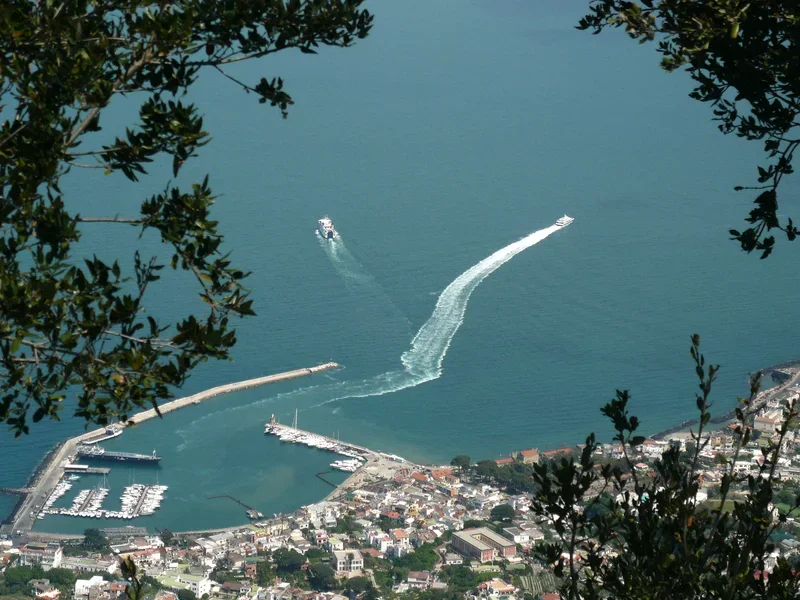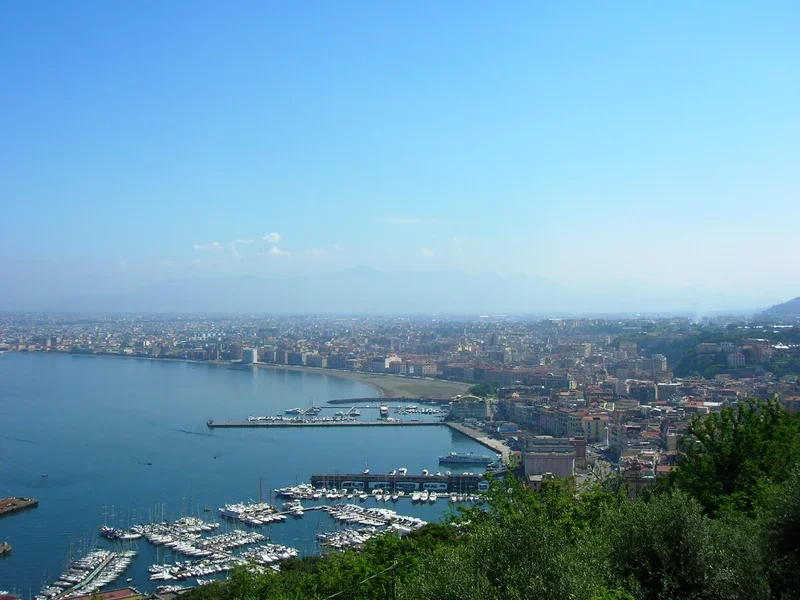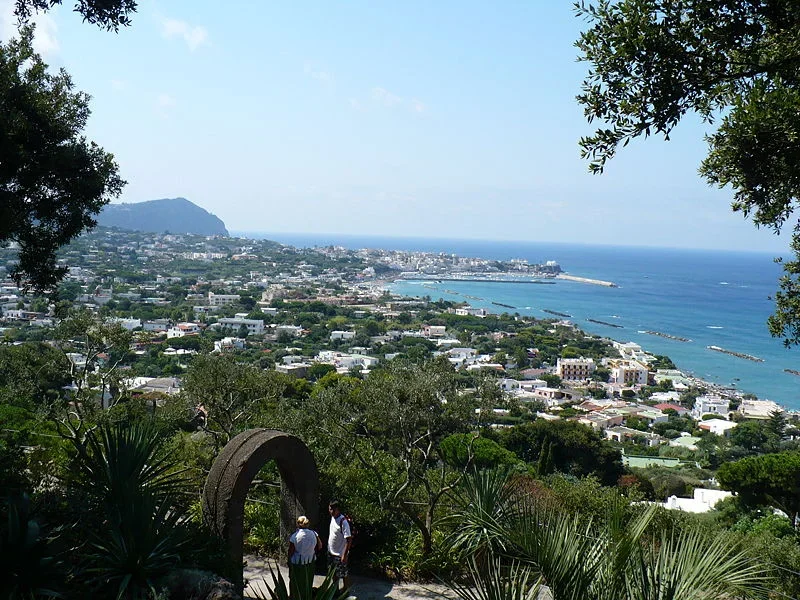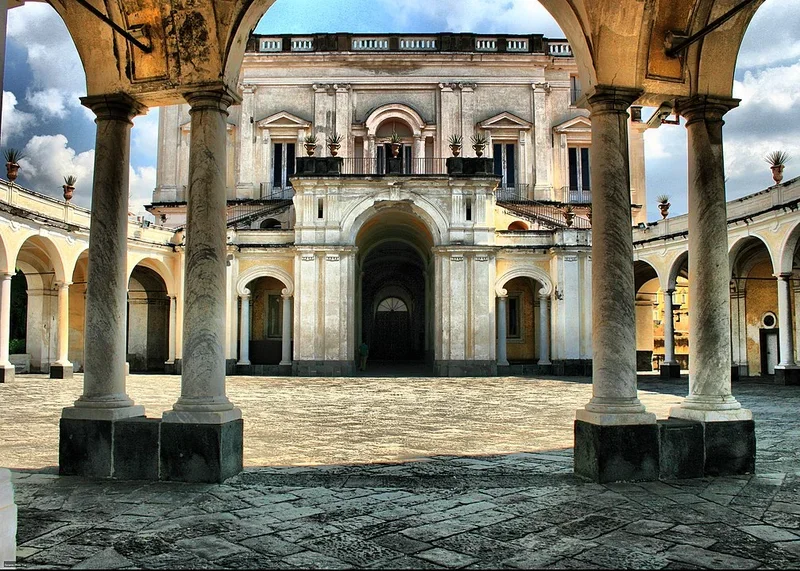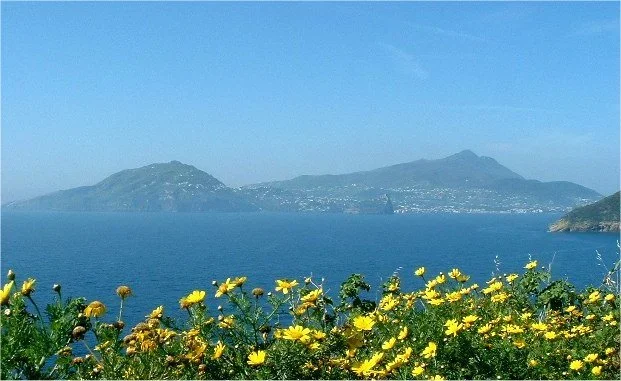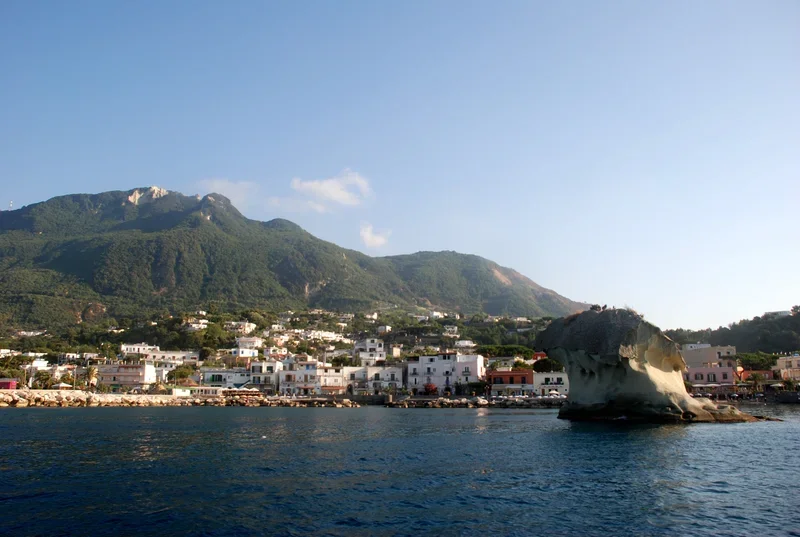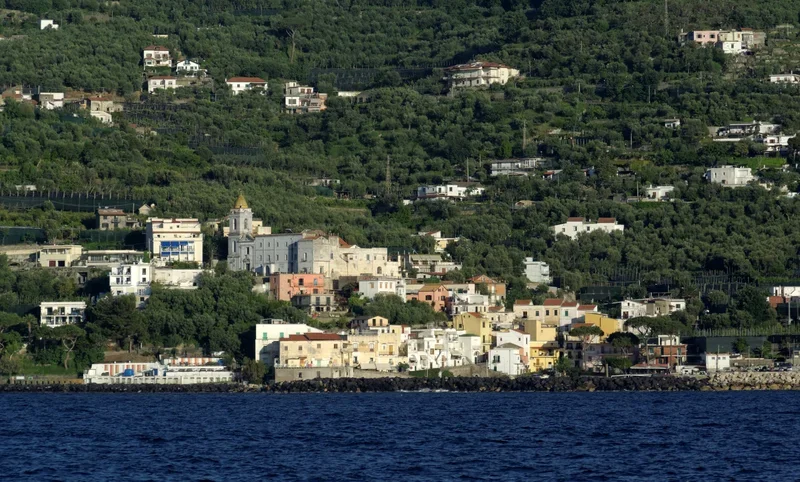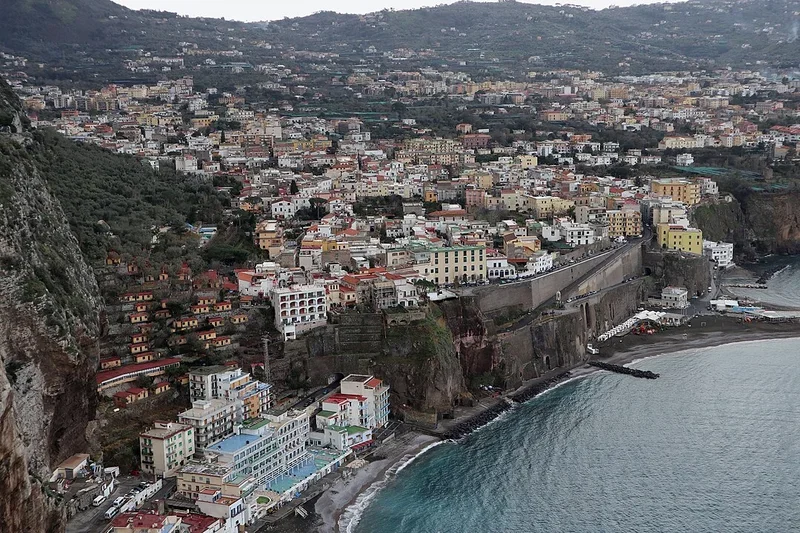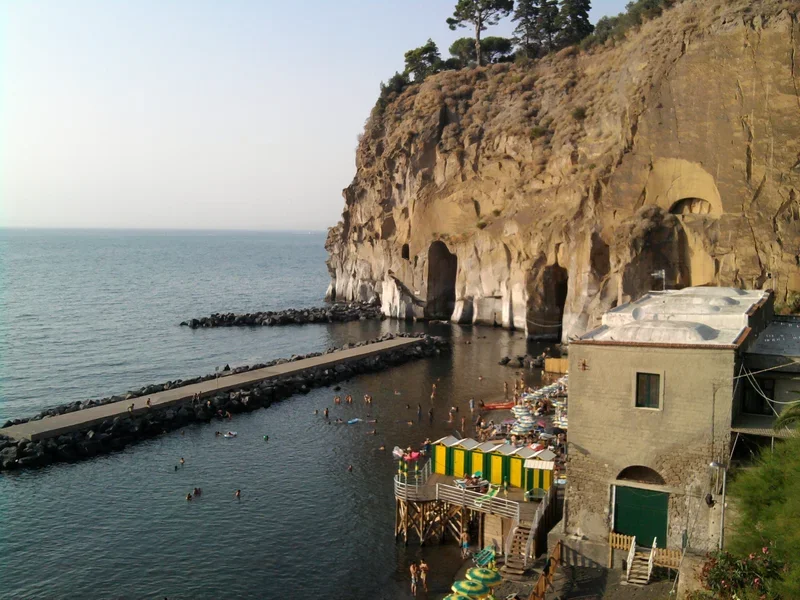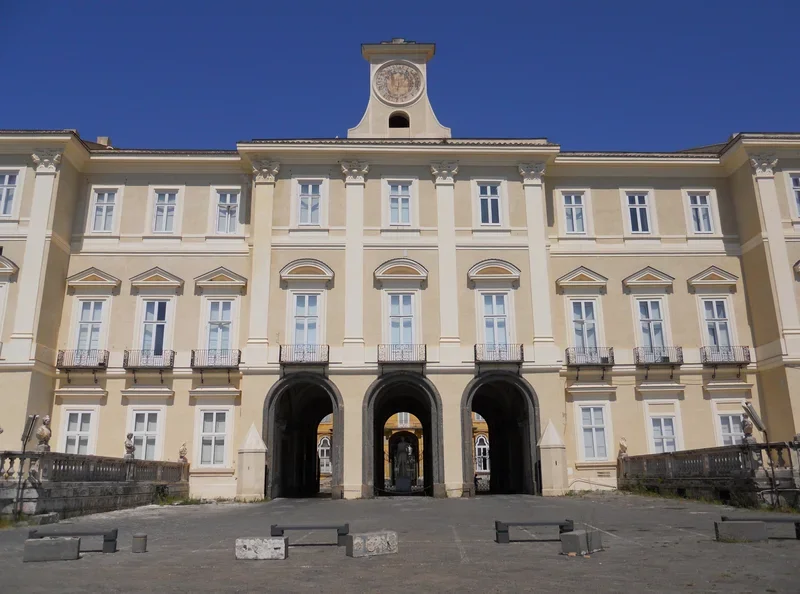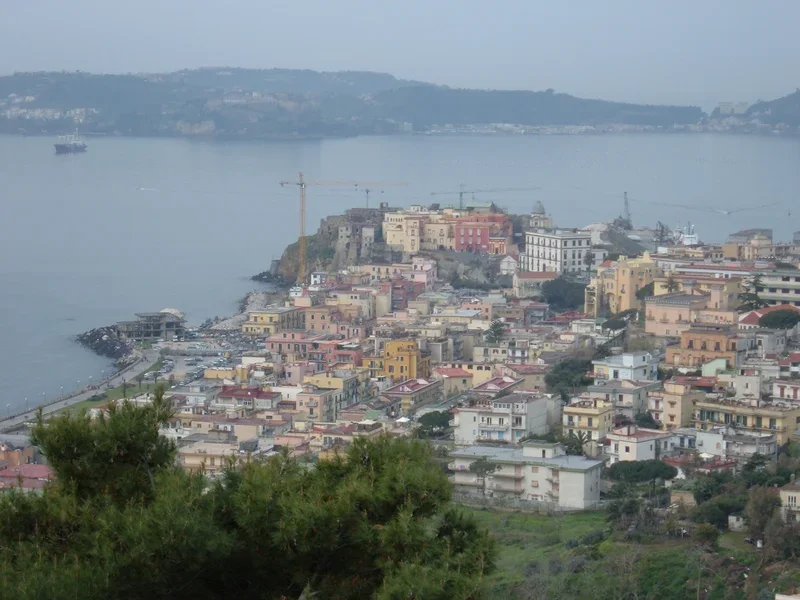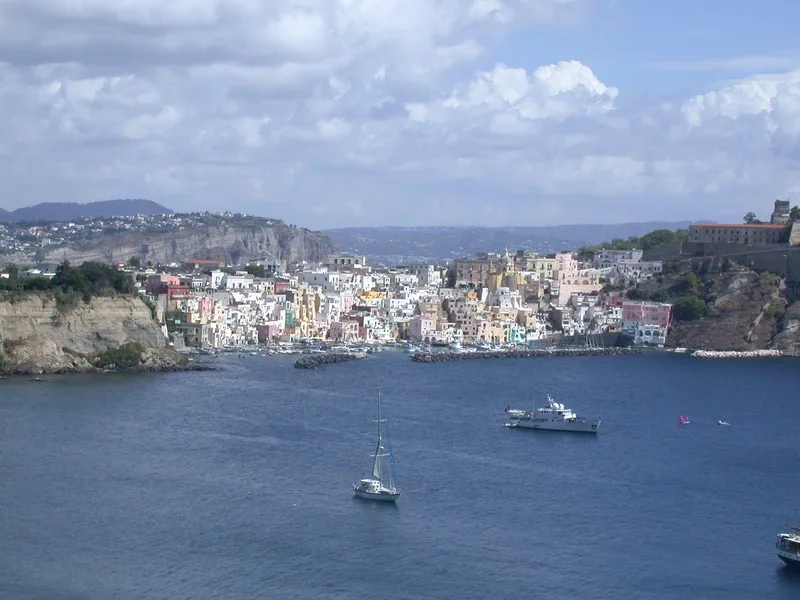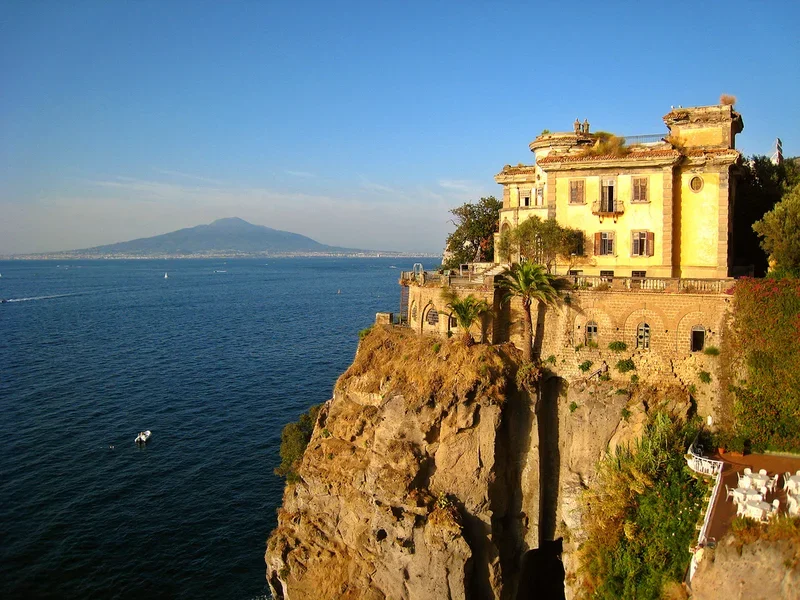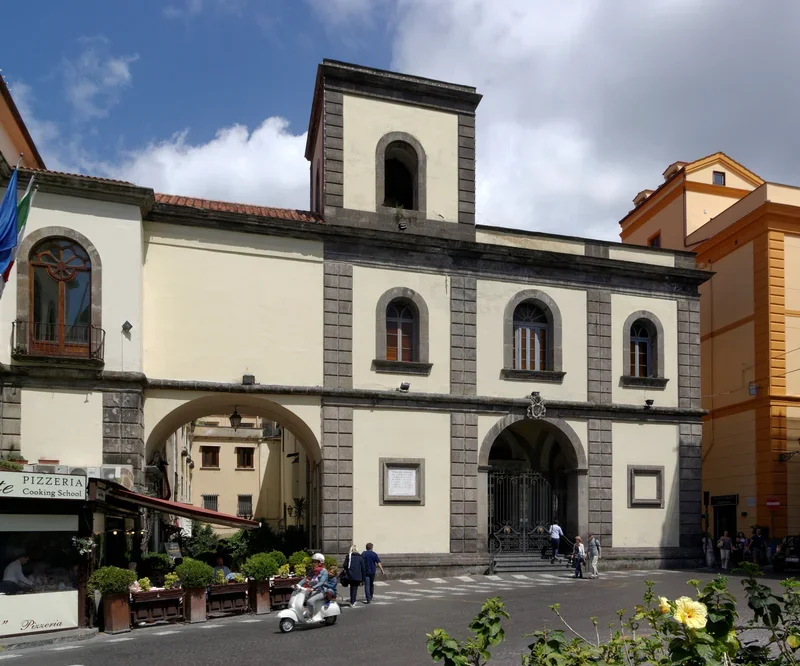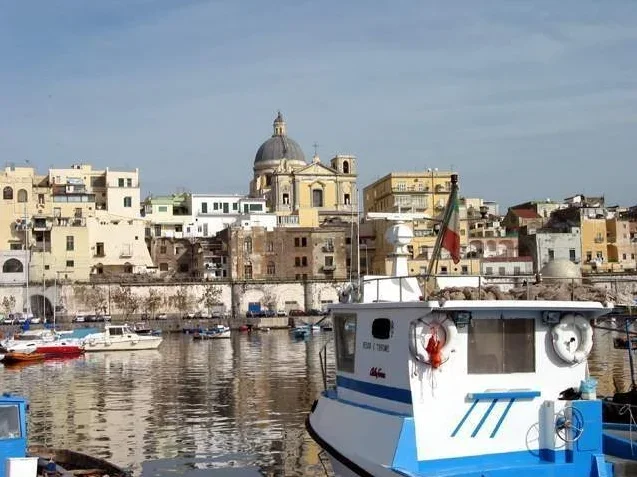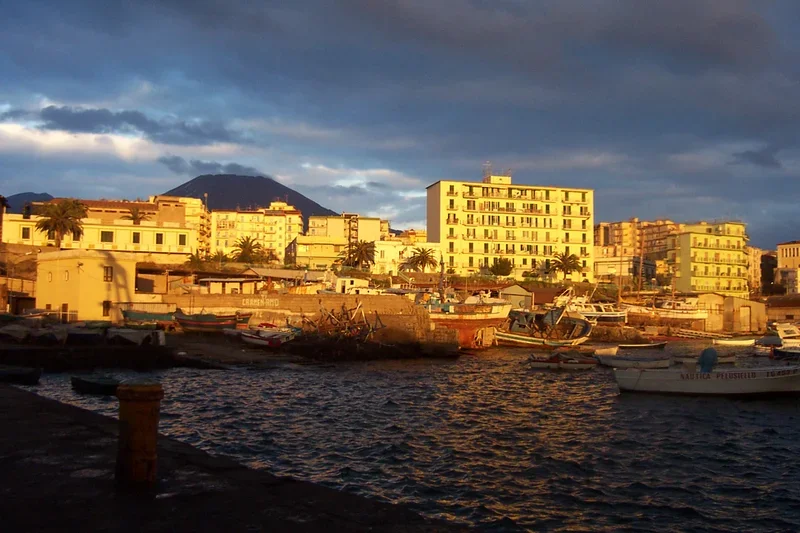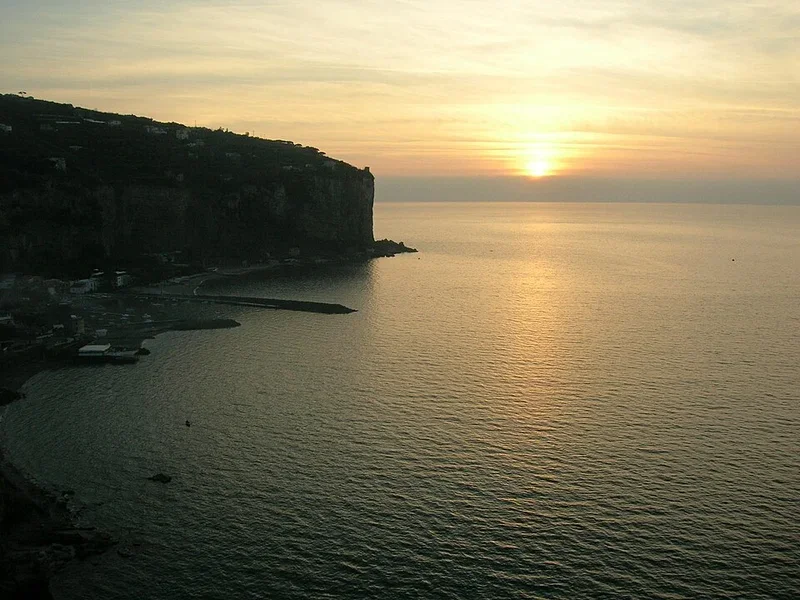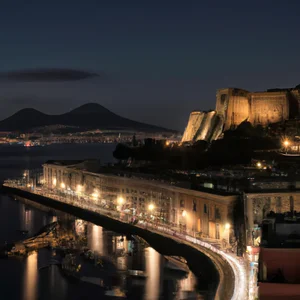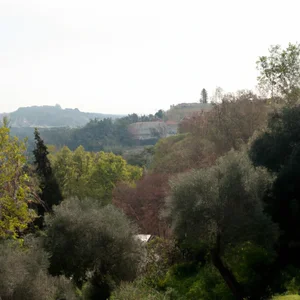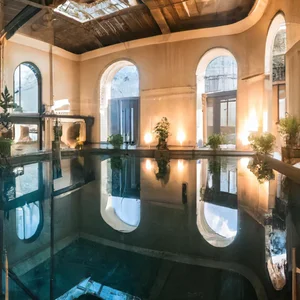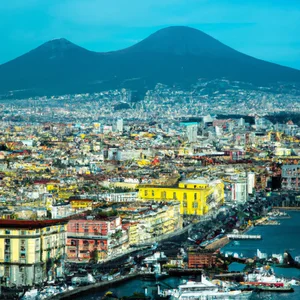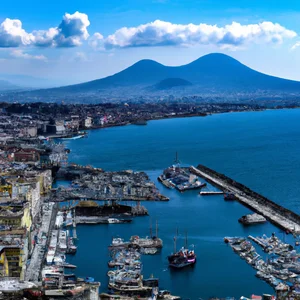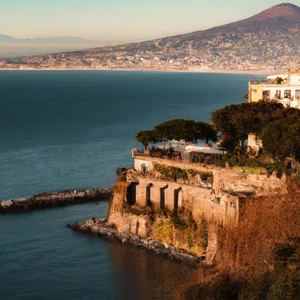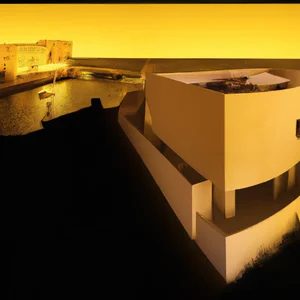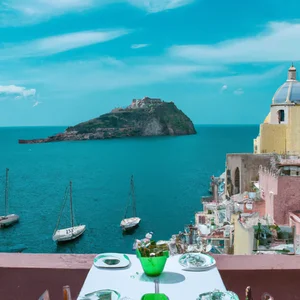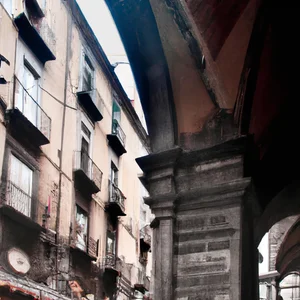Book your experience
Pozzuoli
Pozzuoli, one of the hidden gems of Campania, is a city that embodies the perfect combination of history, culture and natural beauty. Located a few kilometers from Naples, Pozzuoli overlooks the Gulf of Naples and is an integral part of the Campi Flegrei, an area of extraordinary volcanological and archaeological interest. Its thousand-year history is characterized by a continuous intertwining of civilisations, which goes from the Greeks to the Romans, up to the present day. The city is an authentic testimony of how the past can influence the present, with monuments and places that tell stories of an unforgettable time.In this article, we will explore Pozzuoli through ten highlights that highlight its essence. We will start with a fascinating excursus on the history of Pozzuoli, where Roman vestiges blend with local traditions. We will discover the main attractions, from ancient ruins to breathtaking views, until we immerse ourselves in the heart of Rione Terra, a neighborhood that is a true open-air museum.We will not fail to explore the Campi Flegrei and the Solfatara, two natural wonders that offer unique experiences for nature and geology lovers. Local gastronomy will be another strong point of the article, with typical dishes that tell the culinary culture of the area. Furthermore, we will delve into the world of events and demonstrations, which enliven the social and cultural life of Pozzuoli throughout the year.Finally, we will not forget to provide practical information on transport and accessibility, together with useful advice for visitors, so that everyone can have an unforgettable experience in this enchanting city. Pozzuoli is ready to reveal its secrets and win the hearts of anyone who decides to visit it.
History of Pozzuoli
Pozzuoli is a city located in the Campania region, a few kilometers from Naples. Founded by the Greeks in the 7th century BC. with the name of Dicaearchia, the city has a rich and fascinating history, influenced by different cultures and dominations over the centuries.
Greek origins
Its Greek origin is demonstrated by archaeological remains and local traditions. Dicaearchia was an important commercial center, thanks to its strategic position on the sea. The city became a point of reference for trade and navigation in the Mediterranean.
Roman Period
Conquered by the Romans in the 4th century BC, Pozzuoli became a fundamental port for the Roman Empire. During this period, the city experienced a period of great prosperity and development, with the construction of important public works, such as the Colosseum of Pozzuoli and the Temple of Serapis, which testify the architectural skill of the time.
Decline and Rebirth
The decline of Pozzuoli began with the fall of the Roman Empire. The city suffered earthquakes and volcanic activity, which led to the destruction of many of its structures. However, over the centuries, Pozzuoli has experienced a rebirth, thanks to its historical and cultural heritage, attracting tourists and scholars from all over the world.
Cultural and Religious Importance
Today, Pozzuoli is known not only for its ancient history, but also for its lively cultural and religious community. The Rione Terra, the historic center of the city, is a symbol of its resilience and continuous evolution over time.
Conclusion
The history of Pozzuoli is a journey through the centuries, which reflects the transformations of a city that has managed to keep its identity alive, remaining an important crossroads of cultures and traditions. Visiting it means immersing yourself in a fascinating past, rich in stories and legends.
Main attractions of Pozzuoli
Pozzuoli, located in the splendid area of Campi Flegrei, is a city rich in history and culture, with numerous attractions that attract visitors from all over the world. Here are some of the main attractions not to be missed during a visit to Pozzuoli:
The Roman Theater
The Roman Theatre of Pozzuoli is one of the best preserved in the Roman Empire. Built in the 1st century AD, it could accommodate around 4,000 spectators. Today, the theater is used for cultural events and performances, offering a unique experience immersed in history.
The Terra district
The Rione Terra is the historic heart of Pozzuoli, a fascinating area that combines ancient and modern architecture. Here you can admire the remains of ancient Roman and medieval buildings, as well as the Cathedral of San Procolo, which offers a panoramic view of the city.
The Temple of Serapis
The Temple of Serapis, also known as the Macellum of Pozzuoli, is an ancient Roman market dedicated to the god Serapis. The columns and the remains of the walls are a clear example of Roman architecture, while the famous thermal pools testify to the volcanic activity of the area.
Lake Avernus
The Lake of Avernus, considered by the ancient Romans as the entrance to the Underworld, is an enchanting natural area. In addition to being a place of great mythological importance, the lake offers walking routes and the possibility of spotting local fauna.
The Baia Archaeological Park
Located near Pozzuoli, the Baia Archaeological Park is famous for its Roman ruins, including villas and baths. This archaeological site offers a fascinating glimpse into the life of ancient Rome and its connection with the sea.
The Archaeological Museum of the Phlegraean Fields
The Archaeological Museum of the Phlegraean Fields is an important institution that houses archaeological finds from the area, including objects from the Greek and Roman era. The museum is an excellent starting point for understanding the history and culture of Pozzuoli and its surroundings.
These main attractions offer a broad overview of the cultural and historical richness of Pozzuoli, making it an unmissable destination for tourists visiting Campania.
The Rione Terra
The Rione Terra is the historic heart of Pozzuoli, an area rich in history and culture that offers a fascinating view of the ancient life of the city. Located on a volcanic hill, Rione Terra has been inhabited since Roman times, and its origins date back to the 1st century BC
History
The Terra district was an important inhabited center of ancient Puteoli, a flourishing port in Roman times. During the imperial period, the city was a commercial and cultural hotspot, and many public and private buildings were built to bear witness to the prosperity of the era. However, due to volcanic eruptions and seismic activities, the area has undergone numerous transformations over the centuries.
Renovation and recovery
In recent years, the Terra district has been the subject of an important recovery project which has led to the valorisation of its historical and architectural heritage. The characteristic streets, archaeological remains and ancient houses have been restored, making Rione Terra a fascinating place to explore. This recovery process culminated with the opening of several historical and cultural sites, including the Duomo of Pozzuoli, located on the top of the hill.
Attractions
Among the main attractions of the Terra district are the remains of the Roman forum, the ancient theatres and the thermal baths, which offer a glimpse on the daily life of ancient Puteoli. Visitors can stroll through the narrow cobbled streets, admire the ancient walls and discover the many shops and restaurants found in the area, where it is possible to taste traditional local cuisine.
A unique experience
Visiting the Rione Terra is an experience that combines history, culture and gastronomy. The panoramic view of the Gulf of Naples and Vesuvius is simply spectacular, making Rione Terra an ideal place to take unforgettable photographs. Furthermore, the rich offer of cultural events and local events makes this area a point of reference for those who want to immerse themselves in the life and traditions of Pozzuoli.
The Phlegraean Fields
The Campi Flegrei, also known as “Campi Flegrei di Pozzuoli”, represent one of the most fascinating and active volcanic areas in Europe. Located a few kilometers from Naples, these fields are the result of intense volcanic activity that has shaped the territory for millennia.
Geology and formation
The Campi Flegrei are a large volcanic caldera, which was formed about 39,000 years ago following a massive eruption. This phenomenon has given rise to a landscape characterized by craters, fumaroles and hot water springs. The area is of great interest to geologists and volcanologists, who study its activity and its unique characteristics.
Attractions in the Campi Flegrei
Among the main attractions of the Campi Flegrei, we can mention:
- The Astroni crater: a protected area that offers trekking routes immersed in nature.
- Lake Avernus: a lake of volcanic origin, known for its beauty and its link with classical mythology.
- The archaeological park of Cuma: where you can visit the remains of the ancient Greek city, including the famous “Sibyl’s Cave”.
Activities and experiences
Visiting the Campi Flegrei offers a range of activities suitable for nature lovers and adventure seekers. Some recommended experiences include:
- Trekking: various paths allow you to explore the volcanic landscape.
- Guided tours: Organized tours are available to discover the history and geology of the area.
- Wildlife observation: The area is home to several species of birds and wildlife.
Cultural and scientific importance
The Phlegraean Fields are not only a tourist attraction, but also an important scientific research site. Their volcanic activity continues to be monitored, and the area is a natural laboratory for studying volcanic phenomena and their consequences on the surrounding environment.
Conclusion
In summary, the Campi Flegrei represent an unmissable destination for those visiting Pozzuoli and Naples. With their fascinating history, unique landscape and numerous exploration opportunities, they offer visitors an unforgettable experience.
La Solfatara
La Solfatara is an active volcano located in the Campi Flegrei, a few kilometers from Naples and Pozzuoli. This place is famous for its unique geological manifestations, which attract both tourists and earth science enthusiasts.
Geological Features
The Solfatara is a volcanic crater that extends for approximately 1.5 kilometers and is characterized by fumaroles, thermal springs and mud pools. The fumaroles emit water vapor and sulphurous gases, creating a unique and fascinating atmosphere. Soil temperatures can reach up to 160 degrees Celsius, making Solfatara an example of active volcanic activity.
Main Attractions
Within the Solfatara, visitors can explore several areas of interest, including:
- Fumaroles: Openings in the ground from which gas and steam escape, often visible thanks to the condensation of humidity.
- Mud Pools: Areas where volcanic mud boils, creating spectacular visual and sound effects.
- The Crater: The central area of the Solfatara, from which it is possible to observe the various volcanic manifestations.
Activities and Visits
The Solfatara is open to the public for guided tours, which offer a unique opportunity to learn more about the volcanology and geological history of the region. Tours are available in several languages and are led by local experts who provide detailed and fascinating information.
Cultural and Scientific Importance
In addition to its natural beauty, the Solfatara has significant importance for scientific research. Scientists study its characteristics to better understand the behavior of volcanoes and the associated risks. Furthermore, the Solfatara has historically been used for therapeutic purposes, thanks to its thermal waters and mineral muds.
Access and Practical Information
La Solfatara is easily accessible by public transport or by car. It is advisable to wear comfortable shoes and bring water, as the route can be challenging in some areas. It is also recommended to visit it during daylight hours to better appreciate its natural wonders.
Local Gastronomy of Pozzuoli
The gastronomy of Pozzuoli is a reflection of its geographical position, the history and culinary traditions of the Phlegraean territory. The local cuisine is characterized by fresh, high quality ingredients, coming from the sea and the surrounding land.
Typical dishes
Among the most representative dishes of Pozzuoli’s gastronomy we find:
- Mussels peppered: A simple but tasty dish, prepared with fresh mussels, black pepper and lemon.
- Fried fish: A mix of fresh fish, prawns and calamari, fried and served crispy.
- Scialatielli with seafood: A type of fresh pasta, often seasoned with a tomato and seafood based sauce.
- Escarole Pizza: A savory pie filled with escarole, olives, capers and pine nuts, typical of the Neapolitan tradition.
Local Wines
Pozzuoli is also known for its wines, in particular those produced in the Campi Flegrei. Among the most appreciated wines we find:
- Falanghina: A fresh and fruity white wine, perfect to pair with fish dishes.
- Greco di Tufo: Another high quality white wine, characterized by an intense aroma and a mineral flavour.
- Aglianico: A robust and complex red wine, ideal for accompanying meats and more structured dishes.
Pastries and Sweets
We can’t talk about gastronomy without mentioning desserts. In Pozzuoli you can find:
- Babà: A typical Neapolitan dessert, soaked in rum and often filled with cream or cream.
- Pastiera: A traditional cake prepared with ricotta, wheat and herbs, typical of the Easter holidays.
- Zeppole di San Giuseppe: A fried or baked dessert, filled with custard and decorated with black cherries, consumed on the occasion of the feast of San Giuseppe.
Ultimately, the gastronomy of Pozzuoli offers a rich and varied culinary experience, which reflects local traditions and the love of good food. Each dish tells a story and invites visitors to discover the authentic flavors of this fascinating city.
Events and events in Pozzuoli
Pozzuoli is a city rich in history and culture, and this is reflected in the variety of events and events that take place throughout the year. These events offer the opportunity to immerse yourself in local traditions and fully experience the vibrant atmosphere of the city.
San Gennaro Festival
One of the most important events is the San Gennaro Festival, which is held in September. During this festival, the faithful gather to witness the miracle of the liquefaction of the blood of San Gennaro, the patron saint of Naples. The celebration includes a procession and various religious events, making this event a unique experience for visitors.
Rione Terra Festival
Another significant event is the Rione Terra Festival, which takes place in August. During this event, the Rione Terra comes alive with concerts, theatrical performances and cultural activities. It’s an opportunity to explore local traditions and discover the history of this fascinating area.
Food and wine events
Pozzuoli is also famous for its food and wine events, such as festivals dedicated to typical local products. These events are held throughout the year and offer the opportunity to savor traditional dishes, such as fresh fish and tomato-based specialties, accompanied by local wines.
Concerts and shows
During the summer, Pozzuoli hosts numerous concerts and live shows, which are held in different locations in the city, including amphitheaters and historic squares. These events attract renowned artists and offer an excellent opportunity to have fun and enjoy music in an evocative context.
Sporting events
Finally, Pozzuoli is home to various sporting events, including sailing competitions and triathlons, thanks to its privileged position along the coast. These events are an excellent opportunity for athletes and enthusiasts to experience the city from a different perspective.
In summary, Pozzuoli is a city that offers a rich variety of events and displays throughout the year, making it a fascinating destination for visitors who wish to discover local culture and traditions.
Beaches and outdoor activities in Pozzuoli
Beaches of Pozzuoli
Pozzuoli offers various beaches and seaside areas, ideal for those seeking relaxation and fun by the sea. Among the most famous, we find:
- Licola Beach: a long stretch of fine sand, perfect for families and sun lovers. Here you can rent sunbeds and umbrellas.
- Arco Felice Beach: a small beach characterized by crystal clear waters, much appreciated by the locals. It is ideal for swimming and sunbathing.
- Bay of Pozzuoli: a picturesque area with small coves, where it is possible to practice water sports such as kayaking and windsurfing.
Outdoor activities
In addition to the beaches, Pozzuoli and the Campi Flegrei offer a wide range of outdoor activities for nature and sport lovers.
- Excursions: numerous hiking trails are available that cross the Campi Flegrei Park, offering spectacular views and the chance to explore the local flora and fauna.
- Cycling: there are several cycle routes that allow you to discover the area by bicycle, ideal for families and expert cyclists.
- Guided tours: many agencies offer guided tours that combine history and nature, allowing you to learn more about the cultural and environmental heritage of Pozzuoli.
Water sports
The waters of Pozzuoli are perfect for practicing various water sports. It is possible to enroll in courses of:
- Kitesurfing: thanks to the favorable wind conditions, Pozzuoli is an ideal place for this exciting sport.
- Scuba diving: the seabed offers unique spectacles, with a rich biodiversity to explore.
- Paddleboarding: a fun and relaxing activity, perfect for enjoying the calm waters of the area.
In conclusion, Pozzuoli represents an ideal destination for those looking for a combination of relaxation by the sea and outdoor activities, immersed in an extraordinary natural and cultural context.
Transport and accessibility
Pozzuoli is well connected to both Naples and other locations in Campania, making it easily accessible for visitors. Here is some useful information on transport and accessibility of the city:
Public transport
The city is served by an efficient public transport system:
- Metro: Pozzuoli is served by line 2 of the Naples metro, which connects the city with the center of Naples and other locations.
- Bus: Several bus lines connect Pozzuoli with Naples and other cities in the area, offering a convenient option for short trips.
Ferries and hydrofoils
For those who wish to explore the surrounding islands, the port of Pozzuoli offers ferry and hydrofoil services to Ischia and Procida.
Road accessibility
Pozzuoli is easily reachable by car thanks to the presence of main roads and motorways. It is located near the A56 motorway axis, which allows quick access to Naples and other cities in the region.
Parking
Several parking areas are available in the city, both public and private, which allow you to park comfortably during your visit.
Accessibility for disabled people
Pozzuoli is making progress in adapting its infrastructure to ensure accessibility for people with disabilities. However, it is advisable to check in advance the availability of suitable facilities in the places of greatest interest.
Advice for visitors
It is advisable to use public transport to get around the city, as traffic can be heavy, especially on weekends. Furthermore, for an easier visit, it is suggested to plan your travel in advance and take into account the timetables of means of transport.
Useful advice for visitors to Pozzuoli
General information
Before visiting Pozzuoli, it is useful to be aware of some practical information that can make your experience more pleasant and smooth.
Clothing
Wear comfortable shoes, especially if you intend to explore the Rione Terra and the archaeological areas. The terrain can be uneven and there are several climbs and descents.
Climate
The climate of Pozzuoli is typically Mediterranean, with hot summers and mild winters. The months of June and September are ideal for visiting, while in January and February temperatures can drop, but rarely below 5°C.
Language
The official language is Italian, but many locals also speak the Neapolitan dialect. It is useful to know some basic phrases in Italian to communicate with residents.
Coins and payments
The currency used is the euro. Make sure you have cash on hand, especially for small expenses in shops and restaurants. Most places accept credit cards, but not all.
Health and safety
Pozzuoli is generally a safe city, but as in all tourist cities, be careful with your belongings. It is advisable to have a small pharmacy with you for essential treatments.
Respect local customs
Show respect for local customs, especially during religious holidays or cultural events. For example, when visiting churches and places of worship, it is advisable to cover your shoulders and legs.
Public transport
Find out about available public transport, such as buses and the subway. Pozzuoli is well connected to Naples and other places in Campania. Consider purchasing a day ticket if you plan to use public transportation frequently.
Prepare a flexible itinerary
If possible, plan your itinerary, but leave room for improvisation. Pozzuoli has many hidden gems that you could discover while walking around aimlessly.
Useful contacts
It is advisable to have emergency numbers and useful contacts available, such as the local police number and hospital numbers. In case of need, the single emergency number in Italy is 112.

